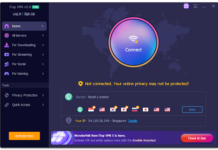Although they seem very recent topic, the mobiles with folding screen take between us more time than you think. We review some of the mobile phones with folding screens that for years have been marking the path to the most modern models.
Although the Mobile World Congress of 2019 has not yet finished, we can already assure you that this year it will be remembered for mobile phones with folding screens . This innovation in the smartphone market seems to be the last shout but, in reality, it is a feature that we have been seeing for many years in different devices, some were simple prototypes and others managed to gain a foothold in the market.
The path that smart phone companies have had to go through until they present the latest flexible screen phones we are seeing this week, such as the Samsung Galaxy Fold or the Huawei Mate X , has been very long. You already know that before coming up with the correct formula you must go through many failed attempts.
In this report we are going to make a small tribute to all those devices that have remained in the drawer of oblivion but that served to build the way to the models that are currently hoarding all the flashes
The first prototypes with a folding screen tried to make them as flexible as the pages of a notebook . These were devices composed of a roller ink panel and a small base plate to which it was connected. At the beginning it was the universities that drove the study and manufacture of these screens during the first decade of the 21st century.
After betting on TFT and LCD panels, they finally decided to try OLEDs. Although the main idea was very clear, the ways to achieve it were very diverse. An example of this is the PaperWindows model that consisted of a kind of blank sheet on which the computer screen was projected. Created by the Human Media Lab of the Queen’s University of Canada
Nokia Also Pointed to Flexible Screens
It could be one of the strangest on this list. Nokia thought that the future would be the gadgets that were transformed by themselves, but did not hit a lot. The Nokia Morph was based on the use of nanotechnology to be flexible, transparent and self-cleaning. It could go from flat screen to fold around the wrist and function as a smart watch among many other things, but it remained in a simple concept.
Also Read: Track someone’s Cell Phone with Best Tracking Software
The Curved Screens of Lg and Samsung
The LG company is another of the companies that has been experimenting with flexible screens for years. One of his first attempts and that did not stay in a simple prototype was the LG G Flex that was sold in 2014 for 799 euros.
It was not a flexible screen to use, but it was curved. Samsung also came to present a similar model, it was called the Galaxy Round. The LG G Flex screen was 6 inches with POLED technology and resolution 1280 x 720 pixels and a pixel density of 245 ppi. It did not convince much, as you can see in the analysis we made . It turned out to be of very low quality for the almost 800 euros it cost.
Another type of curved screen that did reach thousands of homes, were those created by Samsung. The Korean company still includes this feature in the design of its models that is already part of its style as a brand. So we can see it in models as recent as the Galaxy Note 9 .
Reflex, the First Really Flexible Mobile
We went to another of the prototypes that were left along the way but that already began to promise a lot. It is the ReFlex, a mobile presented in 2016 that used the flexibility of its screen to interact with video games. It is also a creation of the Human Media Lab , it is clear that we owe a gap in the history of mobiles.
“The flexible screens are already a reality more and more palpable, but until now few have dared to show their enormous possibilities in a fully functional product” , we wrote these words at that time in ComputerHoy .
ReFlex presented for the first time a high-resolution full-color screen with the multi-touch qualities of any other mobile phone. The screen of this device could not be completely folded as Samsung and Huawei have achieved with their latest models, but it could be flexed to a certain point to activate the commands. The applications in the games, like Angry Bird, were activated according to how much we were able to double the screen.
The panel was LG, OLED with a resolution of 720 pixels and used the Android 4.4 KitKat operating system , although what differentiated it from the rest of mobile phones was the bending sensor and the haptic feedback engine.
The article in which we reported on this new device ended with this sentence: “The people in charge of ReFlex, the first flexible mobile phone in the world, trust that this type of smartphone will reach consumers in the next five years”
Also Read: Tips on How to Manage Your Finances in the Best Way Possible











![Extratorrents Is Down : Here Are The Best Alternatives To Extratorrent Top 14 ExtraTorrent Alternatives + 12 Mirror Sites [Updated 2020]](https://www.todaytechmedia.com/wp-content/uploads/2020/02/featured-100x70.jpg)